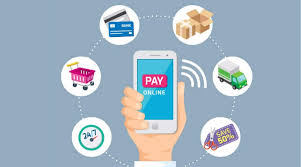How Payment Gateways Can Help with Fraud Prevention
Online transactions have become the norm in today's digital landscape, but so has the risk of fraud. Safeguarding these transactions is paramount; e payment gateway
is pivotal in fraud prevention. By employing advanced technologies and strategies, payment gateways provide robust transaction security, utilise fraud detection tools, implement two-factor authentication, conduct address verification checks, and engage in real-time monitoring.
This article delves into the multifaceted ways in which payment gateways help protect businesses and consumers from fraudulent activities, ensuring secure and seamless online transactions.
Let's explore how payment gateways act as a vital line of defence, employing advanced technologies and strategies to prevent fraud and ensure secure online transactions.

E-wallet payment gateway
Different Ways a Payment Gateway Can Shield Your Business and Consumers
Robust Transaction Security:
Payment gateways utilise encryption and tokenisation technologies to ensure the security of sensitive customer information during transactions. By encrypting data, payment gateways make it unreadable to unauthorised parties, reducing the risk of data breaches. Tokenisation replaces cardholder data with unique identification tokens, adding an extra layer of security. These measures protect customer data throughout the payment process, safeguarding against fraudulent activities and maintaining trust.
Fraud Detection and Prevention Tools:
Payment gateways employ sophisticated fraud detection tools and algorithms to identify and prevent fraudulent transactions. They analyse transaction patterns, customer behaviour, and IP addresses to detect anomalies and potential fraud. Machine learning algorithms continuously learn from patterns and adapt to new fraud techniques, enhancing accuracy. By flagging suspicious transactions for review or blocking them outright, online payment methods in malaysia help businesses prevent financial losses and maintain their reputation.
Two-Factor Authentication:
Payment gateways often employ two-factor authentication (2FA) to strengthen transaction security. This additional layer of verification requires customers to provide a second form of authentication, such as a unique code sent to their mobile phone or email, in addition to their password or biometric authentication. 2FA adds an extra barrier against unauthorised access and helps prevent fraudulent activities, even if login credentials are compromised.
Address Verification System (AVS) and CVV Checks:
Payment gateways incorporate Address Verification System (AVS) and Card Verification Value (CVV) checks as part of the fraud prevention process. AVS compares the billing address provided during the transaction with the address on file with the card issuer, flagging discrepancies that may indicate fraud. CVV checks verify the three-digit security code on the back of the card, ensuring that the person making the transaction has physical possession of the card. These checks provide an additional layer of authentication and help prevent fraudulent transactions.
Risk Assessment and Real-Time Monitoring:
Payment gateways monitor real-time transactions, assessing risk factors and evaluating the likelihood of fraud. They leverage advanced algorithms and machine learning models to analyse data from multiple sources, including transaction history, IP geolocation, and device fingerprinting. This proactive monitoring enables identifying suspicious activities and taking immediate action, such as flagging or blocking potentially fraudulent transactions.
Collaboration with Fraud Databases and Networks:
Payment gateways often collaborate with fraud databases and networks to access valuable information about known fraudsters, stolen credit card data, and emerging fraud trends. These partnerships provide gateways with real-time insights and enable them to block transactions associated with fraudulent activities. By leveraging collective intelligence and sharing information, payment gateways contribute to a broader fraud prevention network, enhancing the overall security of online transactions.
Conclusion:
In an increasingly digital world, payment gateways protect against fraudulent activities. With Mobi, a robust e payment gateway payment merchants can experience secure transactions. This payment gateway in malaysia serves as the guardian of digital commerce, fortifying transactions through encryption, fraud detection tools, two-factor authentication, and real-time monitoring. By collaborating with fraud databases and networks, payment gateways stay ahead of evolving threats. Their efforts protect businesses from financial losses and reputational damage and instil consumer confidence, fostering trust in the digital marketplace. Embracing payment gateways' fraud prevention capabilities is vital for a secure and trustworthy online transaction ecosystem.

.jpg)

Comments
Post a Comment